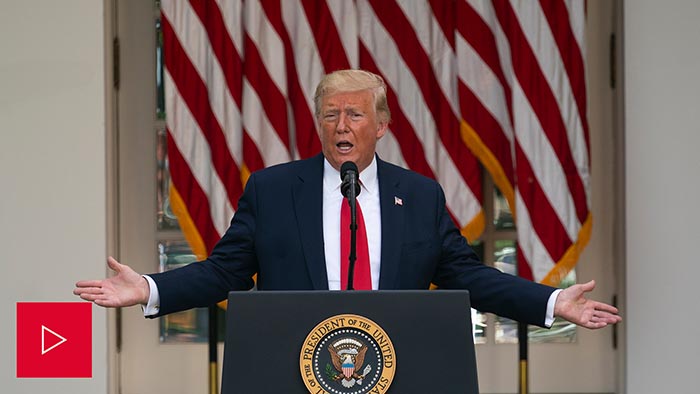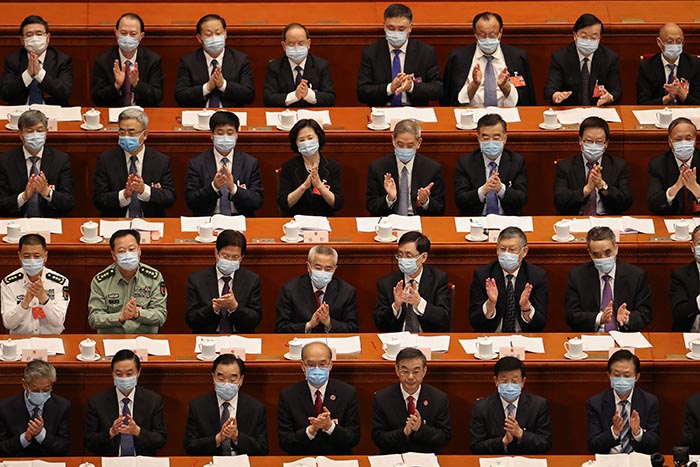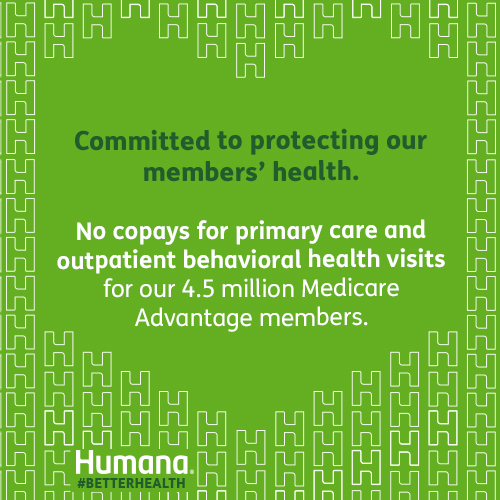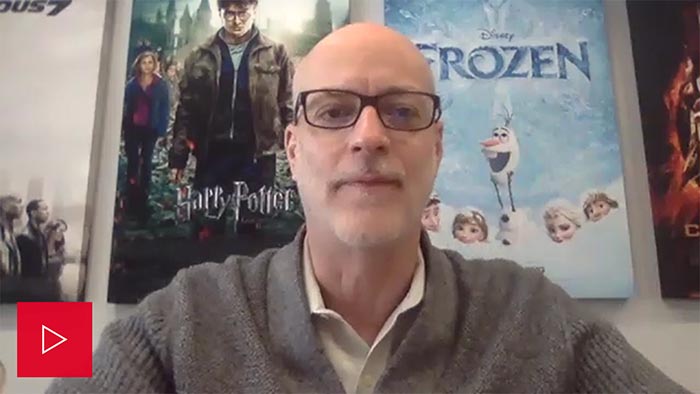 26 May 20
26 May 20
FOCUS: Team Player Bernie Sanders Leans In to Help Joe Biden
 Janet Hook, Los Angeles Times
Hook writes: "Bernie Sanders, long seen by Democratic critics as a loose cannon and definitely not a team player, is stepping up to help former rival Joe Biden in ways likely to far exceed what he did for Hillary Clinton in 2016."
Janet Hook, Los Angeles Times
Hook writes: "Bernie Sanders, long seen by Democratic critics as a loose cannon and definitely not a team player, is stepping up to help former rival Joe Biden in ways likely to far exceed what he did for Hillary Clinton in 2016."
Sanders ended his 2020 presidential campaign and cleared the field for Biden in April rather than fight to the bitter end as many supporters wanted. The Vermont senator is ordering his delegates to the Democratic convention to avoid criticizing Biden. Top lieutenants have set up a super PAC to back the former vice president. And Sanders allies have teamed up with Biden’s on task forces to develop the party platform.
That sets a tone very different from the mood in 2016, when Sanders stayed in the hotly contested nomination race against Clinton until June. His raucous supporters protested at the convention. Some ended up backing third-party candidates or Donald Trump. While Sanders himself campaigned hard for Clinton, their two camps continued to view each other with suspicion.
Now, after more than three years of a Trump presidency, Sanders has made common cause with Biden and forged a more collaborative relationship.
“Both parties have been much easier to deal with; they have been more receptive,” said Ben Tulchin, who did polling for Sanders in both 2016 and 2020. “We all learned a lesson from last time: You don’t want to underestimate Trump. Any marginal loss of votes could cost us the election.”
Trump, who would benefit from Democratic defections, has noted the Biden-Sanders rapport and repeatedly sought to drive a wedge between their camps. Just last week, in two tweets, Trump mocked Sanders, saying, “Crazy Bernie Sanders is not a fighter. He gives up too easy!” and again alleging without evidence that “the Dem establishment” sabotaged Sanders’ chances in the nomination race.
The looming question is how effective Sanders will be in bringing along his most committed backers. Many view Biden with indifference, suspicion or hostility.
“The majority of his supporters will back Joe Biden,” said Chuck Rocha, a former Sanders strategist. “The problem is they don’t all support him right now…. It’s a problem today, but there is plenty of time to correct that.”
Sanders has said he is hopeful that Biden will move to the left on policy to win over voters — Latinos, young people and progressives — who were more inclined to vote for the Vermont senator.
Biden “understands that if he’s going to beat Trump, he needs to grow voter turnout, he needs to speak to young people in this country, who are not enamored with him at this point,” Sanders said Friday on “The Young Turks,” a progressive online talk show. “He needs to speak to the progressive community. He needs to speak to sections of the working-class community.”
A festering wound in the Democratic Party still rankles Sanders and his allies: Clinton and some of her supporters continue to blame Sanders for contributing to her loss, and Trump’s election. Among other things, those critics say, his post-convention efforts for Clinton were tepid and halfhearted.
Sanders and his supporters strongly disagree, noting that he held 39 rallies in 13 states over the last three months of the 2016 campaign. If Sanders is now offering more robust support to Biden, the senator’s allies say, it is in part because Biden is a more willing partner.
“This time the Biden team is welcoming Sen. Sanders with open arms,” said Jane Kleeb, a board member of Our Revolution, a political group aligned with Sanders. “Sen. Sanders does not want to be accused again of not doing enough to defeat Donald Trump.”
This period poses a test of Sanders’ relationship with his ardent followers. As he has tried to rally support for Biden in the interest of party unity, Sanders has taken flak from true believers and risked tarnishing his brand as an anti-establishment iconoclast.
When Sanders dropped out of the race, Biden’s delegate lead seemed insurmountable, and the coronavirus crisis was threatening the country’s public health and economic systems. But many of his supporters were disappointed that he did not continue campaigning, even if he could not win the nomination. They wanted him to fight for more convention delegates, to strengthen their bargaining position in drafting the platform and party rules.
“What’s at stake here is not just the 2020 Democratic presidential nomination,” Larry Cohen, board chair of Our Revolution, emailed to members in April. “We’re fighting to build a progressive Democratic Party.”
Once Sanders endorsed Biden, he leaned in on a number of fronts to help him and the Democratic Party — a party to which Sanders, a political independent, is still not a member.
In mid-April, Sanders signed a fundraising letter for the Democratic National Committee, a group he reviled in 2016 for favoring Clinton. He talked up Biden in his regular livestream appearances for supporters. He appeared with rapper Cardi B on Instagram and Twitter and addressed her concern that “the youth, they don’t really rock with Joe Biden because he’s conservative.”
Along the way, Sanders won some important concessions. Biden reached an agreement allowing Sanders to keep hundreds of delegates he otherwise would have lost, avoiding a messy convention fight. Biden supported Sanders’ effort to secure delegates in New York after officials canceled the state’s presidential primary; the primary was subsequently reinstated.
For his part, Sanders is asking his convention delegates to refrain from the kinds of protests that disrupted the 2016 convention and sign agreements to not attack Biden or party leaders on social media or in interviews.
“Do your best to avoid online arguments or confrontations. If engaging in an adversarial conversation, be respectful when addressing opposing viewpoints or commenting on the opposition,” said a statement of social media policy for delegates, first reported by the Washington Post. “Our job is to differentiate the senator from his opponents on the issues — not through personal attacks.”
One obstacle Sanders faces in getting supporters to transfer their loyalty to Biden: Many are infrequent or new voters who engaged in politics for the first time when they backed him, and idealists averse to half-a-loaf politics.
A USA Today-Suffolk University poll in April found that 14% of Sanders supporters do not intend to vote for Biden; 8% are undecided. Three out of five — 61% — said they were not excited about voting for him.
Sanders predicted that most of them would come around.
“At the end of the day, the vast majority of the people who voted for me, who supported me, will understand and do understand that Donald Trump is the most dangerous president in the modern history of this country,” he told ABC News. “I think at the end of the day, they will be voting for Joe Biden.”
Jeff Weaver, a longtime Sanders strategist, set up the pro-Biden PAC to help sway Sanders voters, especially Latinos, young voters and progressives. The pitch, he said, will be that voting for Biden is the only way to build on Sanders’ success in pushing the party to the left.
“We now have an opportunity to lock in some of those gains,” Weaver said. “It’s not about convincing progressives that Joe Biden is Bernie Sanders or that he is a progressive icon.”
Weaver was criticized by some Sanders supporters for forming a super PAC, a vehicle for raising money from big donors that Sanders has opposed.
“We are trying to get big money out of politics, so this does that movement no good,” Nina Turner, formerly co-chair of the Sanders campaign, told the Hill, a Washington news site. “And for it to be so close to the Sanders movement is really heartbreaking.”
The policy task forces announced this month began holding Zoom meetings last week to make recommendations on topics including healthcare and climate change. Both Biden and Sanders selected high-profile representatives. The climate panel includes Rep. Alexandria Ocasio-Cortez of New York, an advocate for the so-called Green New Deal who holds great sway with Sanders’ followers, and former Sen. John Kerry, a Biden ally who helped negotiate the Paris agreement, the Obama-era climate change treaty that Trump disavowed.
Sanders has no illusion that Biden will embrace his full agenda — by suddenly dropping his opposition to Medicare for All, for example. But he sees an opportunity to make gains.
“It’s going to be the responsibility of our task force members to try and push in a respectful way, to move them as aggressively as we can,” Sanders advisor Faiz Shakir said.
For all their policy differences, Sanders and Biden are bound by their shared goal of beating Trump.
“They understand what’s at stake,” Biden spokesman Jamal Brown said, “and our campaigns are working closely together to achieve our mission.”










